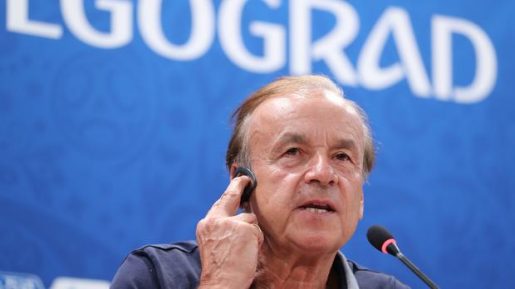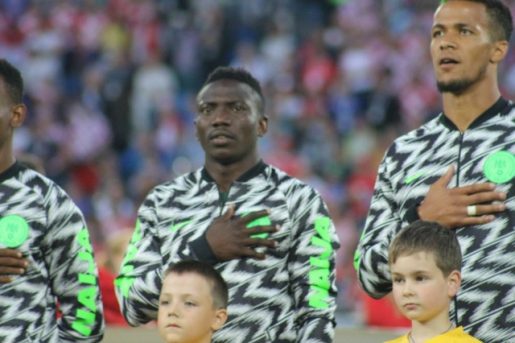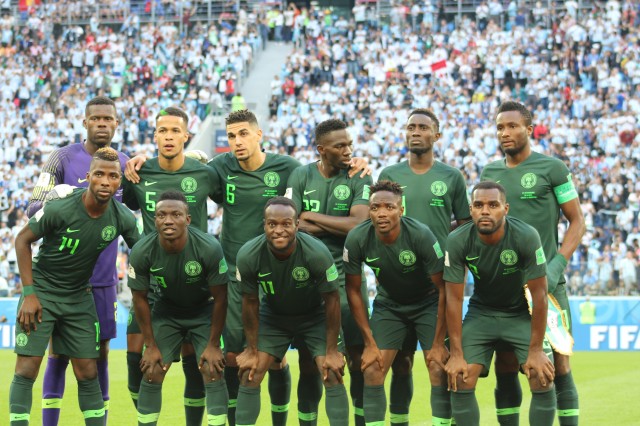Although Nigeria was eliminated at the group phase of the 2018 World Cup, it was an elimination where Nigeria’s progress at a future World Cup appeared improved. This may read a bit corny because Nigeria already advanced to the Round of 16 in three previous World Cup appearances and, in 1994, was a mere two minutes away from a quarter final place.
Beyond mere results, watching the 2018 games provides a better feeling than the group phase eliminations of 2002 and 2010 when the Nigerian team was not just poor but the future looked quite bleak.
But feeling good about the future is not an assurance that the future will be better than we have seen from Nigeria in previous World Cups. Instead, feeling good means that if Nigeria works hard and takes advantage of opportunities, then bigger accomplishments are quite possible.

The New World Cup
Bigger accomplishments are, indeed, possible because the seemingly impenetrable barrier to World Cup success that is set up by an oligopolistic group of countries that previously won the World Cup was severely damaged at the 2018 World Cup. That singular act has made the 2018 World Cup an important bench mark that may not be fully understood now but its message is beginning to be clear.
Here is what the 2018 World Cup communicates to us: the World Cup is no longer restricted to a few nations. The days when a few nations, oligopolistic in nature, exchanged the trophy amongst themselves are over. The defeat of Germany in the Group phase underlines it just as well as Germany’s shocking 0-2 loss to South Korea. The days of the huge gap between the oligopolistic nations and the rest came to an end in 2018 or so it seems.
The introduction of new technology, particularly VAR, has made refereeing decisions more transparent. Never mind that there are still few issues in the use of the technologies in order to make it better. This increased transparency has created a fairer, or at least potential for creating a fairer, competition where legacy, the past, and the big names have lesser advantages than in the past. Ultimately, the elimination of several oligopolistic countries at the 2018 World Cup cannot be easily disentangled from new technology.
It is this new World Cup that welcomes Nigeria and should be anticipated in 2022 in Qatar. Nigeria is no longer at the World Cup to participate but it has a real chance to accomplish major things, including winning or being at the medal stage. But it also means that anyone, including a new and strong Nigeria, can falter at the group phase as Germany did this year. Both hard work and good fortune underline the great opportunity for success.
Watching Nigeria beat the darling of Europe – Iceland – and give as much as it took against the 2014 World Cup finalist – Argentina – shows that Nigeria can be a player in this new World Cup. Its loss to Croatia points to what can also happen when you respect the opponent too much and fail to drive as hard as is possible. That is what this new World Cup is – respect no one, feel that you are just as good as they are and take the opportunities. It is about self belief. That is what it is.

Getting to Qatar
Nevertheless, there is hard work ahead to get to the next World Cup finals in Qatar in 2022. It would have been much easier if FIFA President had been successful in getting his 48-team World Cup approved for 2022 but instead that plan has been shelved because of reported complications.
Thus, there will still be just 32 teams at the next World Cup in Qatar. That means five from Africa. For Nigeria, that defines a tough qualification process to get to Qatar. Already, we know that Morocco, Egypt, and Senegal were solid teams representing Africa at the 2018 World Cup.
Then, of course, there will be the usual contenders in Ghana, Ivory Coast, and Algeria, to mention just a few. Although, Nigeria has been to several World Cups, the strength of the African qualifiers should never be underestimated and there has to be a realisation that both hard work and good fortune are required in order to get through.
I realise that I have thrown around the word hard work without pinning down what it really means in this context. It means ensuring that the team is relatively stable and that Nigeria does not begin another rebuilding for the umpteenth time.
The core of a 2022 team is already present including the likes of Alex Iwobi, Francis Uzoho, Wilfred Ndidi, Oghenekaro Etebo, and Tyrone Ebuehi. The Federation must decide early whether or not to keep its current coach Gernot Rohr. The good feeling from this elimination compared to those in 2002 and 2010 is based on a team built over an appreciable time.
The mistake would be to make a late coaching change that leads to a team in shambles as we saw in 2002 and 2010. Hard work also means scouring all over the world to invite desirable players but not ignoring those based in Nigeria. It also means playing high profile international friendlies that present opportunities for higher FIFA ranking and a better and friendlier World Cup group than the one Nigeria faced in 2018.
It also means ensuring that a strong and supportive Federation is in place to support the team. At 2018, the good feeling came from the idea that there were no late night bonus fights, litany of complaints, and unpreparedness as was the case in previous World Cups.
If these things are done, they represent the hard work that is absolutely necessary for Nigeria to have a high probability of getting to the World Cup finals in Qatar four years from now.
The Essence
Let’s celebrate the arrival of a new World Cup in spite of Nigeria’s elimination at the group phase of the 2018 World Cup. It is in that new World Cup that Nigeria’s hopes of World Cup success lie. The probabilities are high, provided Nigeria does the hard work that includes stability, preparation, planning for higher ranking and seeding, while riding good fortune.









